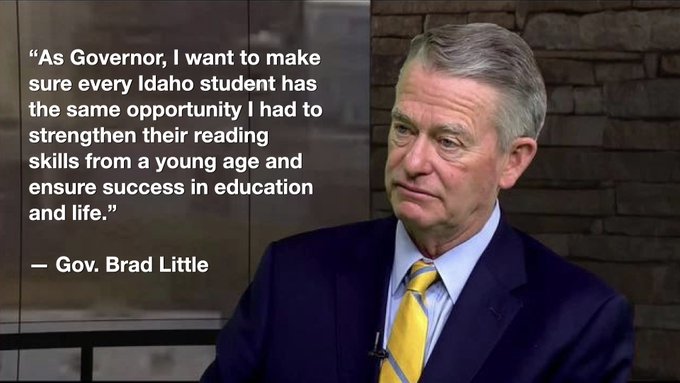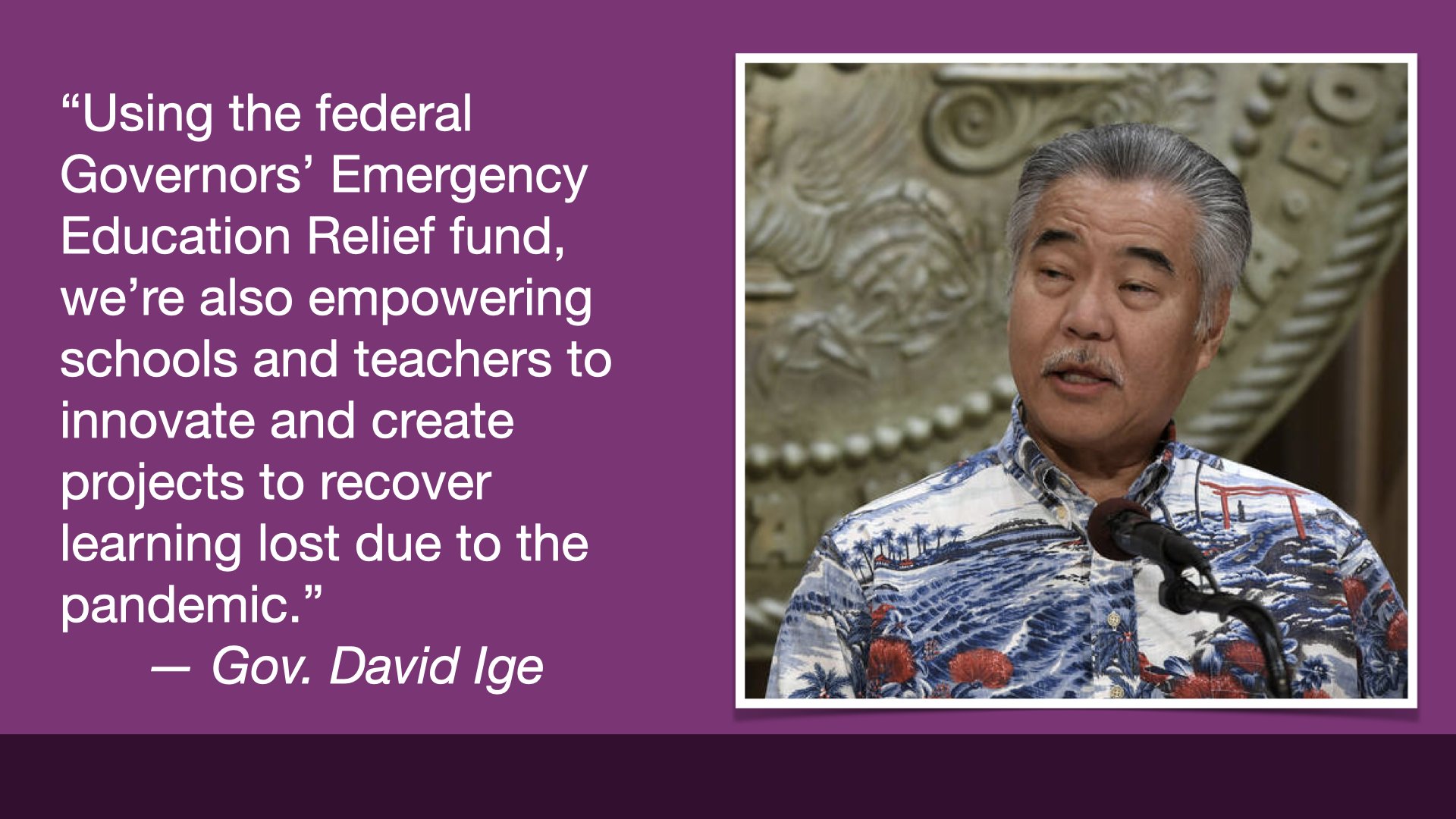Governors discussed the impact of interrupted instruction on K-12 students and highlighted plans for additional academic supports, including afterschool and summer learning, during their State of the State addresses.
By Catherine Van Ness
This year, K-12 education was a topic raised by almost every Governor who delivered a State of the State address. There were many accomplishments to celebrate, new funding increases to announce, and innovative ideas to preview across the country. However, Governors also acknowledged the impact of the COVID-19 pandemic on all of their residents, including the unique impacts to school settings. A primary challenge that teachers have reported stemming from the public health emergency was a large number of students missing from class.

Studies have shown that some students lost progress against learning benchmarks, particularly in math and reading, and some Governors mentioned strategies to boost numeracy and literacy in their State of the State addresses. In recent years, some progress has been made in the strategies employed to help students catch up in academic subjects. Rather than remediation, or repeating lessons that students may have missed during periods of remote instruction, many states and districts are focused on accelerated learning, which allows students to grasp concepts from prior grades woven together with their current year’s curriculum. It is also critical that students with unique needs receive the appropriate support to recover after disruptions to their learning time and environment.
Across the country this year, states reported budget surpluses, which can provide more money to spend on public education. A portion of the federal pandemic relief funds provided to states and local education agencies (LEAs) must be used to help students regain learning progress. The federal American Rescue Plan Act (ARPA) required that LEAs use at least 20 percent of the funds they received through their state’s Elementary and Secondary School Emergency Relief (ESSER) allocation to provide evidence-based interventions for the purposes of academic recovery. Similarly, states were required to use at least 5 percent of the funds they received through the ARPA ESSER Fund for the same types of evidence-based interventions that seek to address students’ academic recovery.
One of the top spending priorities for districts across the country when it comes to the federal ESSER funds is summer learning. NGA hosted a webinar with national experts and representatives from the U.S. Department of Education to discuss lessons learned from Summer 2021. Another high priority for states and districts spending federal funds on academic recovery is intensive tutoring services, such as the New Jersey Tutoring Corps and Tennessee Tutoring Corps. Extending learning time for students during afterschool hours or over the summer break can be an effective strategy for academic recovery when attendance rates are high and evidence-based interventions are incorporated into the programs.
Of the Governors who provided State of the State addresses in 2022, at least 20 mentioned interrupted instruction, academic recovery, and afterschool or summer learning and enrichment.
Acknowledging the challenges that schools, teachers and students have faced during the past two years, Rhode Island Governor Daniel McKee said, “Students’ academic growth continues to be impacted by the learning disruption created by the pandemic.” Washington Governor Jay Inslee also urged greater investments in education to help close gaps in student learning caused by interrupted instruction.
Now that fewer schools are experiencing disruptions and are welcoming students back to the classroom in-person, Governors shared their hopes for students to make progress in the critical subjects of math and reading. Alaska Governor Mike Dunleavy emphasized the important foundation set during the K-12 years saying, “We must ensure that our children are attaining the benchmark skills in reading and math that will set them on a course for success no matter what career they choose.” Mississippi Governor Tate Reeves celebrated the progress of fourth grade students in reading and urged that a similar coaching strategy be deployed to improve student achievement in math. U.S. Virgin Islands Governor Albert Bryan celebrated the dedication of $1.5 million for community foundations that assist students in building literacy and numeracy skills. Utah Governor Spencer Cox lamented that “for far too many children an inability to read at grade level by 3rd grade means a life of struggle and disadvantages” and urged support of legislation that aims “to make sure every child has the reading foundation necessary for future success.”

State budget surpluses have allowed states to increase public education funding, and Governors, state education agencies, and local school districts are also planning to spend federal pandemic relief funds on academic recovery strategies. Hawai’i Governor David Ige committed some of his federal Governor’s Emergency Education Relief (GEER) funds to accelerate student learning. Indiana Governor Eric Holcomb touted the work of Indiana’s Department of Education to launch accelerated learning programs, supported by $160 million, and Nevada Governor Steve Sisolak mentioned his work with the legislature to secure $200 million last year to support summer school, tutors, and other academic interventions for students.
Many Governors framed this summer as a critical moment to both accelerate students’ academic progress and to engage students in fun learning opportunities. Arizona Governor Doug Ducey stated, “So come June, we’re launching a summer camp with an emphasis on catching kids up in key areas: math, reading and American civics. We will lead the way to eliminate learning loss.” California Governor Gavin Newsom celebrated the expansion of summer school, and Connecticut Governor Ned Lamont emphasized the importance of having free summer learning camps to engage youth. Kansas Governor Laura Kelly touted the success of the Sunflower Summer program, a collaboration between the Department of Wildlife and Parks, Tourism Division and the State Department of Education to offer free programming to children and their families. Vermont Governor Phil Scott celebrated the expansion of the Summer Matters initiative saying, “Two years ago at my request, we started down a path toward universal afterschool and summer programs…we added 30,000 more summer camp slots and about 240 more weeks of programming. And we will do it again because we should be offering these opportunities to young Vermonters, year-round.”












